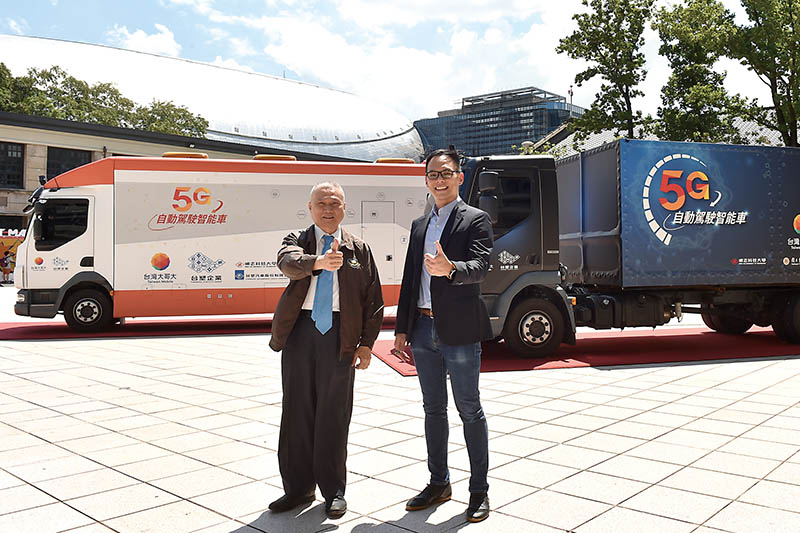
Taiwan Mobile teams up with self-driving transport startup iAuto to produce 5G and Cellular V2X-powered autonomous vehicle technology for commercial and government clients

“As a mobile network technology, 5G goes well beyond traditional telecommunications services and consumer uses. The applications are increasingly far reaching, and more and more industries are becoming involved.
“It’s no longer just about phones,” says Taiwan Mobile’s Lin. “It’s also about designing a network for the IoT industry.” He notes that Taiwan’s place as one of the frontrunners of 5G buildout and penetration will open opportunities for a variety of new IoT-powered smart industries.
“Hopefully, Taiwan can be one of the leading economies and end up creating opportunities to export some of these industries that we end up building on top of the 5G network,” he says.
For example, Taiwan Mobile recently teamed up with self-driving transport startup iAuto to produce 5G and Cellular V2X-powered autonomous vehicle technology for commercial and government clients. The technology will be deployed at the Chang Gung Health and Culture Village, a retirement community operated by the Chang Gung Memorial Hospital, an affiliate of the Formosa Plastics Group, iAuto’s other major partner.
Safety has been one of the major concerns when it comes to self-driving vehicle technology. In the U.S., some fatal crashes have resulted from latency issues that tech firms experienced with the communication systems in automated vehicles. Although 5G boasts very low latency, its shorter signal poses some logistical issues for widespread use.
For iAuto’s founder, Kang Li, ensuring that his company’s solutions can be safely implemented means being realistic about the limitations of 5G.
“5G is still in the early stages, and we haven’t found a complete solution that can be adopted at a reasonable cost and that can also enable a sustainable business model,” says Li, who serves concurrently as a full-time board member of the Taiwan Transportation Safety Board. For one thing, to make safe nationwide self-driving transportation a reality, Taiwan will need to wait for the debut of a technology known as multi-access edge computing (MEC) to reduce latency and thereby bolster C-V2X’s practicality.
“This is why, for now, we are focusing our business model on closed or semi-closed environments,” says Li. In addition to its project in the Health and Culture Village, iAuto has also been contracted to install its self-driving vehicle modules on trucks that transport hazardous substances inside Formosa Plastics’ Mailiao petrochemical complex. It is also currently participating with Taiwan Mobile in a bid to develop the island’s first “smart harbor,” part of a land reclamation project in Kaohsiung initiated by Evergreen Marine Corp., the giant Taiwanese shipping line.”
